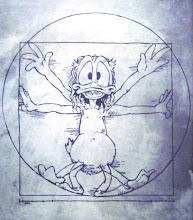 enemies and pride amongst comrades. Consequently, it's not surprising that chess is historically a MANLY PURSUIT, given that men generally possess a warlike competitive spirit, while women more nurturing and tend to reticence rather than making waves.
enemies and pride amongst comrades. Consequently, it's not surprising that chess is historically a MANLY PURSUIT, given that men generally possess a warlike competitive spirit, while women more nurturing and tend to reticence rather than making waves.At any rate, war and chess were connected in the Russian/Soviet mind very early and very clearly in the person of Nikolai Vasilyevich Krylenko (1885-1938). Personally appointed by Lenin, a violent Krylenko declared at the onset of the red tide: "We must execute not only the guilty. Execution of the innocent will impress the masses even more."
But it was the same Krylenko that in 1924 had taken on the task of turning chess into the Soviet Union's national game. As chairman of the chess section of the Supreme Council for Physical Culture of the Russian Socialist Republics, Krylenko persuaded the Kremlin to organize the first international tournament at Moscow in 1925. In his introduction to the tournament book, he wrote:

"In our country, where the cultural level is comparatively low, where up to now a typical pastime of the masses has been brewing liquor, drunkenness and brawling, chess is a powerful means of raising the general cultural level."Between organizing mass murders of the workers he cared so deeply about, Krylenko edited the main Soviet chess journal: '64', keeping ideological control of a chess community that soon grew to tens of millions. The party slogan: "Take chess to the workers!"
The Cold War brought new life to chess, especially in the West. The Cold War was a psychological war, and was therefore prime for metaphorical representation by the likes of chess. As competing nations couldn't turn to physical conflict, they turned to intellectual sparring. The import of the games carried more than a title to any one individual, rather but the implied superiority of the winner's nation.
Chess as a metaphor was everywhere. Do you remember that the opening scene of one of the first James Bond films--those icons of anti-red propoganda--, 'From Russia with Love', is a chess match between two grandmasters?
 In real life, it was the Fischer-Spassky match of 1972 —when an eccentric American genius smashed 25 years of Soviet chess hegemony—that was the 'sports' event that marked the beginning of the end of the Cold War (vastly more than did the 1980 Miracle on Ice). The end that left the West victorious also left Bobby Fischer mentally crushed and socially inept, an ironic end to the man who said: "Chess is war on a board. The object is to crush the other man's mind."
In real life, it was the Fischer-Spassky match of 1972 —when an eccentric American genius smashed 25 years of Soviet chess hegemony—that was the 'sports' event that marked the beginning of the end of the Cold War (vastly more than did the 1980 Miracle on Ice). The end that left the West victorious also left Bobby Fischer mentally crushed and socially inept, an ironic end to the man who said: "Chess is war on a board. The object is to crush the other man's mind."Given this storied and politically charged game, what I want to know is whether chess boxing can mean anything now...?



No comments:
Post a Comment